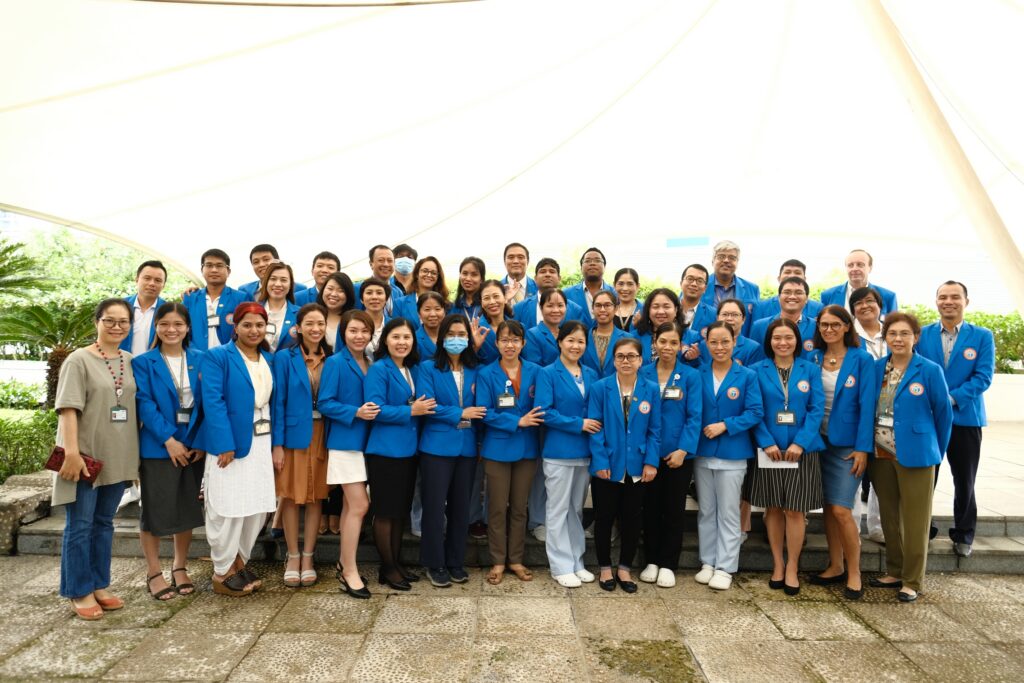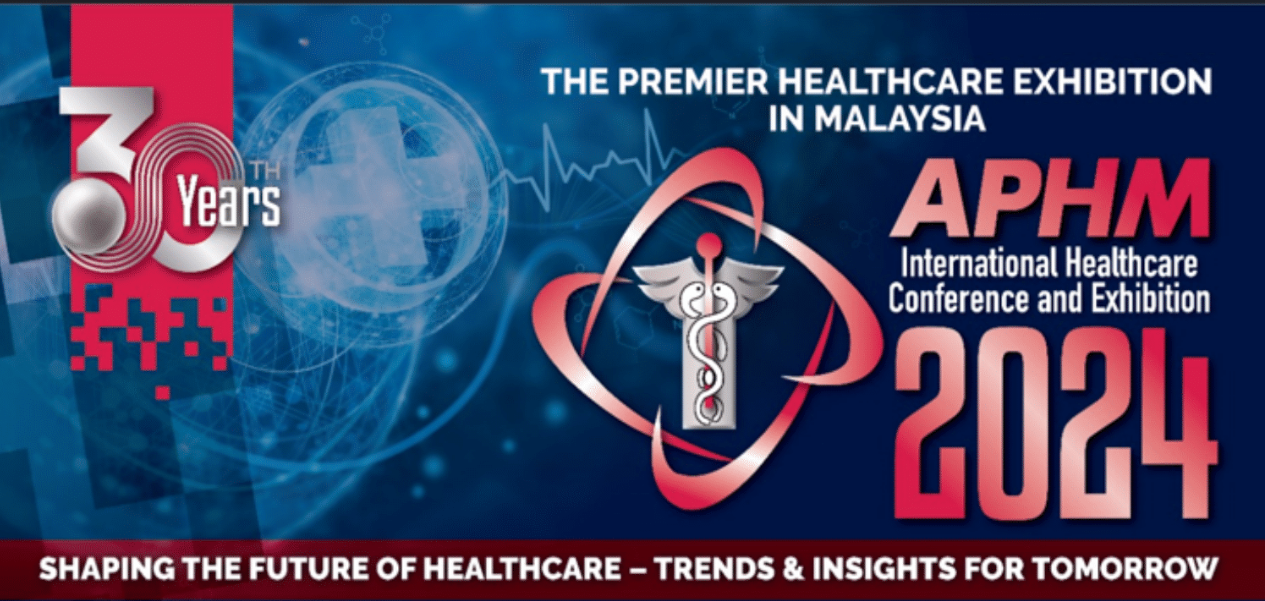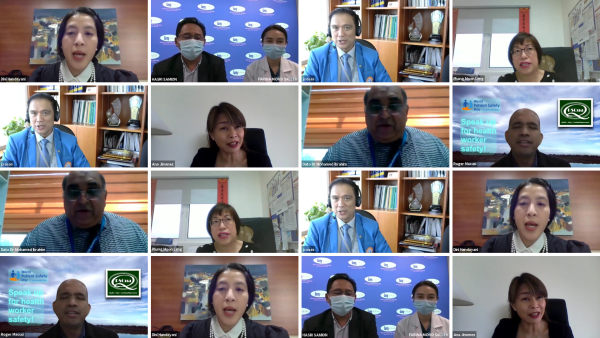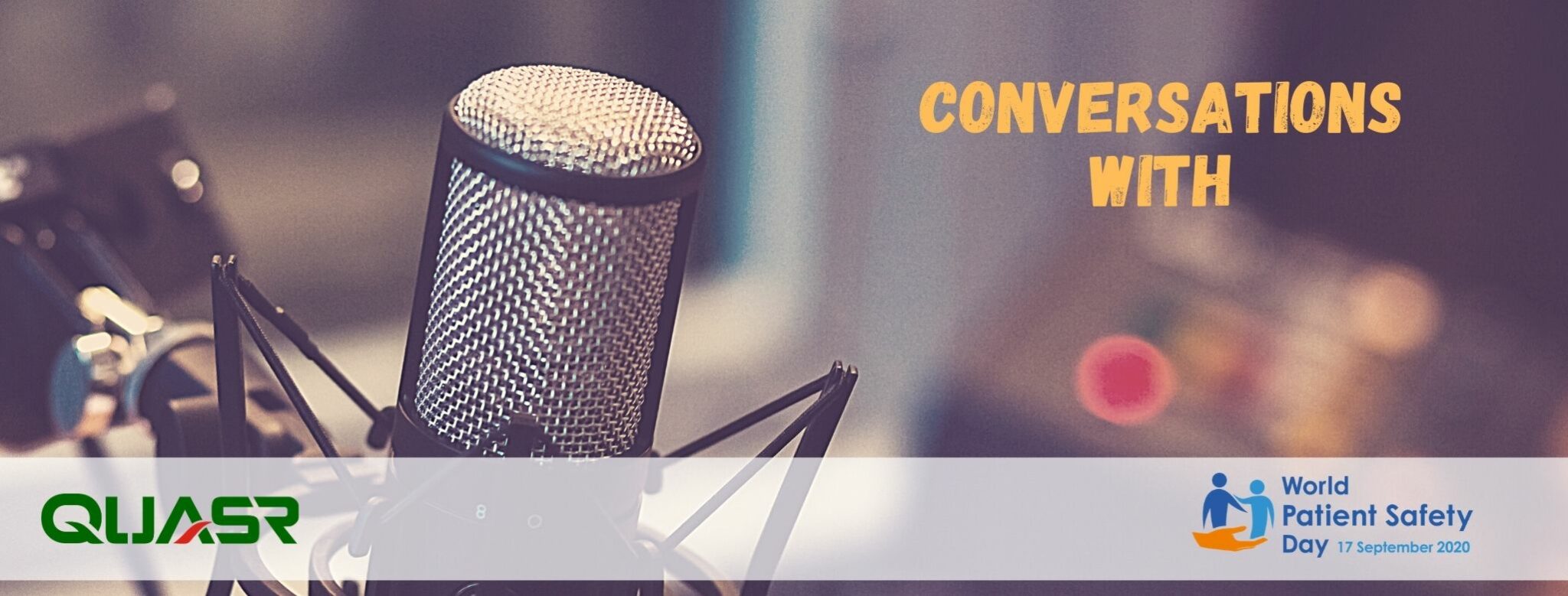
Dr Juan Lucas Rosas is the Quality Management Director, FV Hospital in Ho Chi Minh City, Vietnam. QUASR’s relationship with Dr Rosas goes back to the time we met in an HMA conference in 2018 and have been HMA-friends ever since. His feedback, comments and conversations on patient safety solutions have helped us shape into the better product that we are. We also take this opportunity to thank Dr Rosas for graciously accepting our interview request and sharing valuable thoughts and opinions with us.
In this interview, Dr. Rosas shared the background of the current healthcare situation in Vietnam, on how the government has been and is doing an excellent job of controlling the spread of COVID19. It does seem like they have the entire situation under control and are not unduly overwhelmed at this time.
“WPSD was celebrated for not just a day but a week to make sure that the staff are well-educated with regards to preventing harm not only hospital-acquired infections such as covid but the most common causes of harm”.
FV hospital considers Patient and Staff safety as a holistic program. They have a hospital-wide program called ‘gearing towards zero harm’. In this program, they collect all the most common causes of harm in a healthcare setting. Then, they run a series of educational programs and activities to engage and educate the staff. FV Hospital does not just focus on infectious diseases as part of this project. They consider the whole gamut of preventable medical errors to achieve holistic improvements.
Talking about the theme for this year’s WPSD, “Health worker safety a priority for patient safety” and how ‘staff safety is a precondition to Patient safety’, Dr Rosas was quick to agree.
“Definitely. It is very closely related. Why? If your staff are not safe, how can they serve well? If your staff are getting sick, how can you serve the patients. So they are directly related”. “Safety, it starts from home. We take care of our staffs so that they can take care of our patients.”
Globally, many hospitals tend to focus more on Patient safety compared to health worker safety. Statistics show that the rate of occupational illness and injury in the healthcare industry is higher than that of many other sectors. So, is Health worker safety being neglected in a way? Dr Rosas thinks it is far from intentional and probably has more to do with awareness and training.
“Most probably there is no intention for them to neglect but a lack of empowerment. You have to empower the staff, you have to engage them. If they know how to prevent or how to take care of themselves, they can take care of the patient.”
Increasing awareness in terms of safety precautions for staff and workers is one key advise Dr Rosas has for hospitals on developing a single culture of safety.
Throughout the world, there is a lot of fatigue and burnout among medical practitioners because the system is overwhelmed. From the perspective of mental health and wellbeing, proper and effective communication with staff, especially during a pandemic like this, is essential. Agreeing to that note, Dr Rosas shares how their hospital emphasizes work-life balance. They have a program called ‘I love FV’ which is a work-life balance campaign. Here, the staff engage in various activities that are fun or engage in a hobby to relax.
“Infact in FV, we have this program, we call it, ‘I love FV’, which is a work life balance campaign. We engage them in diff activities, not only learning, fun learning, but also for them to engage in a hobby that will eventually make them relax and be able to focus in the work afterward.”

Support and Guidance from the government are also vital to continuously following safety measures and protocols and ensuring an overall safe environment. On the recent COVID19 experience, Dr Rosas highlights how the government of Vietnam was quick to form a task force. They formulated protocols for preventing transmission, and actively audited all hospitals in Vietnam to ensure adherence to the internal transmission protocol.
One of the better outcomes of this pandemic is that it has accelerated Digital transformation in the healthcare industry, reshaping Healthcare with technology and innovation. FV Hospital is a digitalization pioneer. They have been using software solutions for EMR, incident reporting system, and risk management system. Their current focus is data analytics and eventually expect to embrace even Artificially Intelligent systems.
There is no International Healthcare Safety Board!
Talking so passionately about Patient and Staff safety and envisioning an International Healthcare Safety Board, Dr Rosas and his team have been working towards adopting a National Healthcare Safety Board. What drives his passion, in specific, for Patient Safety?
Dr Rosas narrates an incident where a friend of his who was a medical director of another hospital outside Vietnam experienced an avoidable patient safety incident resulting in the death of the patient.
“In this story, you can see the discrepancy. It was like an epiphany for me. Patient safety is not available throughout the world, especially to those who cannot avail accreditation”.
Dr Rosas says “Healthcare industry is often compared to a safety-critical industry like Aviation. Similar to Aviation, even in Healthcare, there are checklists and protocols and processes to follow. And yet, the number of preventable medical errors are still so much. So what’s the difference between Aviation and Healthcare? There’s no Healthcare Safety Board. In aviation, if you don’t follow protocols, you will be labelled as not fit to fly. But in Healthcare, you all have this freedom not to do so, and it’s a matter of life! Therefore we need to have an International Healthcare Safety Board wherein safety processes will be regulatory rather than an option for health care providers. And that’s my big dream!”
Despite all the educational materials on protocols and medication safety and so many guidelines, it is still not a priority. Patient and Staff safety, globally, is not yet the utmost priority. We need to step up, and we need to do it now. Thousands of patients across the world suffer avoidable harm or are put at risk of injury while receiving health care every single day. Safety is for all.
“this should be the foremost responsibility and accountability of all health care organizations – make it safe.”
For us here at QUASR, this conversation was an immensely educating experience. Many aspects that we take for granted or assume to be the norm, are actually not so. The cost of these assumptions manifest in terms of patient and/or health worker safety. We hope you enjoyed reading about FV Hospital’s approach to healthcare safety. We believe there are many aspects of this approach that you can take forward to your organizations as well.



